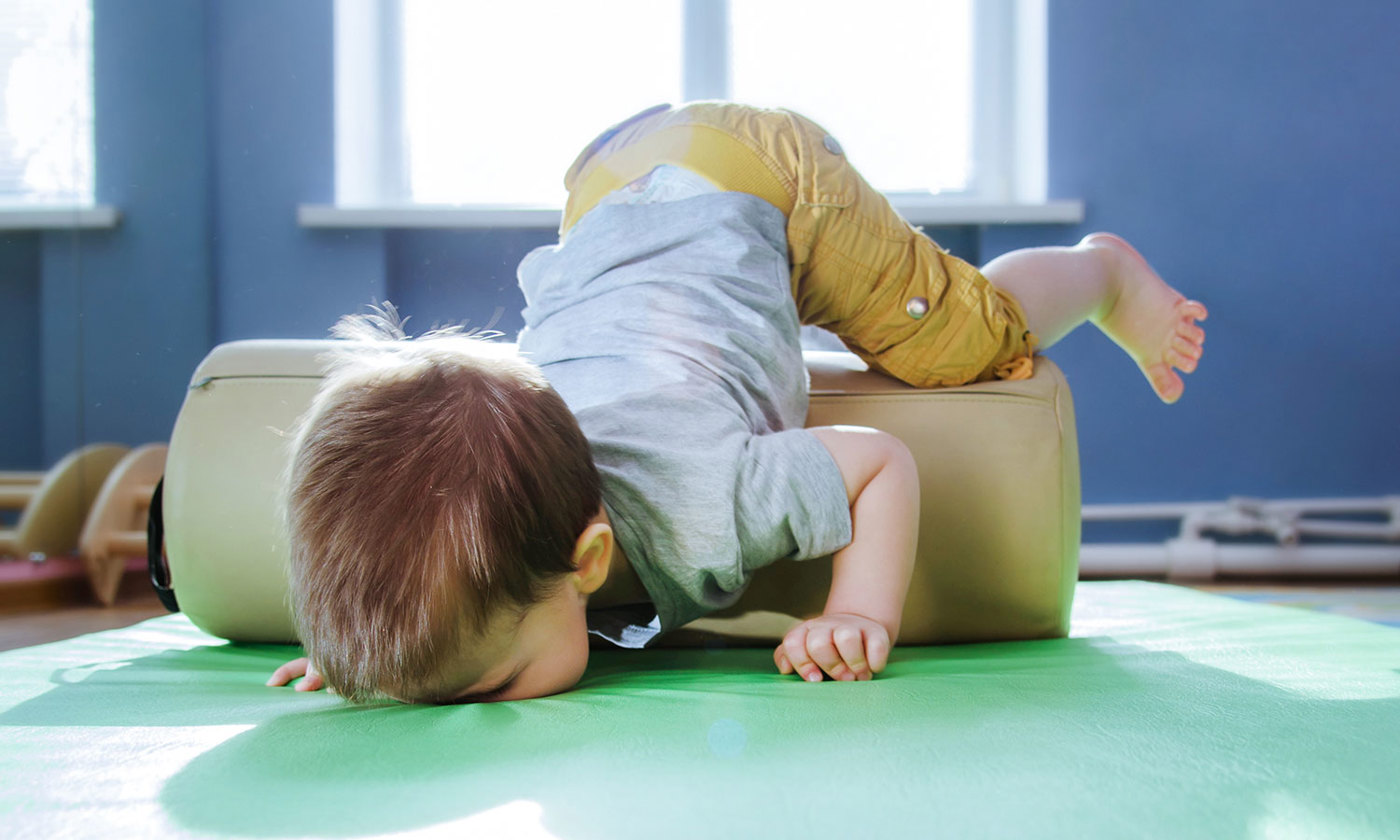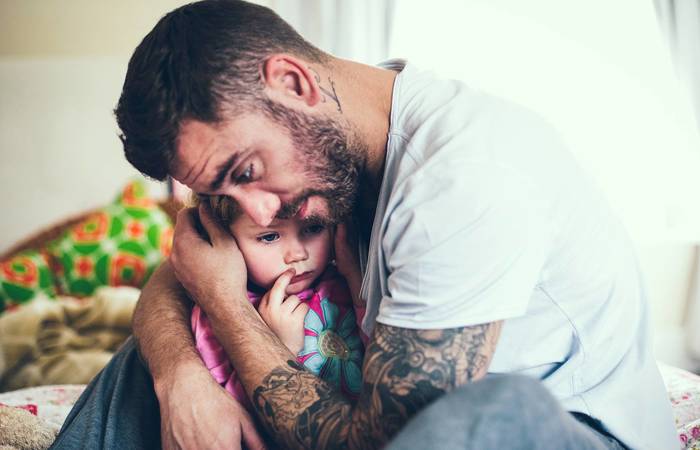Like what you see?
Sign up to receive more free parenting advice.
Thank you for subscribing to our newsletter!
Child Development

Credit: iStock.com/JohnAlexandr
Maggie Dent is one of Australia’s favourite parenting authors, a former teacher and counsellor, and host of the ABC podcast, Parental As Anything. In this article, she explores why letting our children fail may be a gift for life.
While the landscape around parenting has changed quite drastically over the last 50 years, parents still want the same things. We all want our children to grow up to be happy, healthy, competent and capable.
Also, what children need to grow well and to thrive has not changed at all, however the world around our children has changed a lot.
Parents tell me all the time that they feel judged by others – both in the real world and online. Often the developmentally normal (and yet challenging) behaviours of toddlers through to teens are seen to be a problem, a sign of poor parenting.
I can reassure you as the mother of four sons who are now responsible capable adults, that I had many moments where the choices they made, impulsively, spontaneously and in the name of fun, made me look like a terrible parent!
This includes the meltdown in the supermarket that saw one of my toddlers throw a kilogram of yoghurt in anger because I chose the wrong flavour. Then there was the stolen book from the book fair that was found in one of my son’s bags. And yes, I confess, I committed the cardinal sin of completely forgetting Book Week one year and the pillowcases with hastily drawn images and words on them as costumes really did suck!
Parenting is not a perfect artform; it never was and it never will be.
Overprotecting our kids comes at a cost
One of the changes that I have noticed in the shift away from punitive parenting, which had a major focus on punishment to change unwanted challenging behaviour, is the overprotection of children.
Well-intentioned parents spend hours trying to protect their children from experiencing moments of imperfection, especially failure.
From toddlerhood, our children are wired to explore the world around them. What we may see through the lens of ‘poor’ or ‘disappointing’ behaviour, the science of child development would suggest is healthy growth. Yes, the smearing of your favourite face cream on the dog, on the carpet, on the cupboard and through their hair is a sign that they are experiencing massive sensory exploration as they grow endlessly valuable synapses in their brains.
The ‘seeking mechanism’ of the toddler brain is designed to be curious and failure is an essential part of that exploration of the world. I would argue that experiences like the unravelling of toilet rolls, the emptying of the entire shampoo bottle into the bath water and the tasting of the occasional snail, are a sign that your child is nurturing their potential genius qualities.
Kids are kids, prone to making poor choices – dropping things, drawing on the wrong things with permanent marker, being selfish and struggling to share, having meltdowns, falling over, and having bumps and bruises while playing freely – because they have an underdeveloped brain with which to make better choices.
When children are protected from failing or being disappointed – regardless of whether this comes from a place of love – it will come at a cost later in life when a moment of challenge or setback arrives (and it will).
Allowing curiosity builds self-determination
Self-determination and grit can be shaped in the early years as well as through to the teen years. Essentially, self-determination theory (SDT) assumes that what is inherent in human nature is the capacity to be curious about one's environment and interested in learning and developing one's knowledge.
There is often a degree of intrinsic rather than extrinsic motivation that can be cultivated. Unfortunately, a combination of ‘behaviourism’ and the self-esteem movement has seen rewards and punishment (which are extrinsic forms of motivation) perceived as the best way to teach children how to make good choices. These days, I think children almost get stickers for breathing, and they are often over praised. I once heard a parent say to a child in the playground, ‘good smiling!’.
Rather than let children experience more moments of disappointment, especially under five, well-intentioned parents are constantly clearing any challenges or obstacles out of the way, so that their children can have a wonderful, happy childhood.
I have been writing for over 20 years about the demise of the party gave, Pass the Parcel. There used to be one winner, but somewhere in recent years the rules changed and now everyone gets a prize.
This shift aimed at protecting kids from being disappointed, has meant many children have seldom experienced disappointment.
We need our kids to know how it feels to not get what you want or to be let down by life because it will happen right throughout your whole life. The ability to navigate bigger emotions, especially challenging feelings like disappointment and despair, need to be practised early in life because it will build emotional buoyancy which is a key factor of self-determination as a grown-up.
When children are protected from failing or being disappointed – regardless of whether this comes from a place of love – it will come at a cost later in life when a moment of challenge or setback arrives (and it will).Maggie Dent
Stay up to date with the latest news and articles from First Five Years
Thank you for subscribing to our newsletter!
Reframing mistakes gives kids agency
Unfortunately, something happens as our toddlers head towards the test-driven schooling system. Their similar attempts to explore the world can get labelled as mistakes. This term – which may have come from early archery meaning a ‘miss take’ where an arrow misses its target – becomes more sinister. Children learn very quickly that doing well in class, especially with assessments, matters much more than being curious and inquisitive.
I was recently thrilled to hear one of my granddaughters who is in Year 1, tell me that in her classroom mistakes help you be a better learner! What a great age to learn that failure can help us to grow, rather than just stunt our growth! This is something parents can model at home too.
When our children muck up, we can help to build their capacity to cope and overcome adversity by giving them agency to learn how they can overcome the poor choice or the mistake they just made.
For example, “Oh, you’ve just spilt a cup of milk on the floor, how do you think you will clean that up best – using a mop or a cleaning cloth?” Then pause, allow them to choose and then allow them to take action. So often, loving parents step in and clean up, which gives children an implicit message that they are incapable of cleaning up their own messes.
We often problem solve for them in moments of heated conflict with siblings, forgotten library books or lunches, or attempts to get out of household chores. A better approach is to encourage your children to become the problem solvers and you will be surprised at how capable and creative they can be at resolving problems.
Practising failure helps us learn to lose well
Professor Carol Dweck in her book, Mindset, explores the difference between flexible and fixed mindsets and she encourages teaching our children that making mistakes and meeting the challenge of addressing failure. She argues that kids need to play lots of games with others to learn about losing and winning – well.
No-one ever enjoys losing or failing, however we can learn to manage it better. The digital world does not give children the same teachable moments around failure and many of those moments are being lost with our digital natives. They need to lose with other humans who have moving human faces and big emotions!
Simple card games and board games are a great starting point. As kids get older there’s always hide and seek, beach cricket, tag, chasey and even good old noughts and crosses! Even experiences like flying kites can have valuable learning experiences because kites are notoriously badly behaved.
So please let your kids fail – it may be one of the most important parenting decisions you ever make.
Accepting, understanding and even appreciating the role disappointment can play in raising a happy, healthy, competent, confident, resilient child might not be obvious.
We cannot leave it to chance to raise our children to believe that this rollercoaster ride we call life will ever be a peaceful field of daisies without any prickles.
Feeling disappointed in ourselves or in our lives, or in the world around us is normal because we are human. There is no perfect. The more that we can armour up our children with helpful information, strategies and a ‘get back on the horse’ mentality, the more we increase their chances of living meaningful, successful lives.
Remember, persistence and practice can improve performance and failure is just a part of life, not a sign that we are lousy parents.







